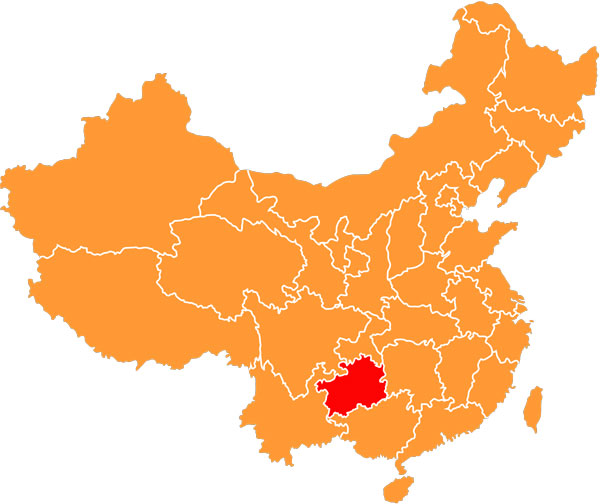
The province is a mountainous basin where an old saying goes, "there is no flat land within three feet, no three days without rain, and no person with three yuan." It has been historically difficult to access from the outside world and is considered the poorest province in China.
In Guizhou, there are 15 different ethnic minorities. Among them are the Yao, Miao, Yi, Qiang, Dong, Zhuang, Bouyei, Bai, Tujia, Gelao, Mulam, and Sui peoples. Together, they make up 37% of the population and have regional autonomy over 55% of the area. Particularly notable are the three autonomous prefectures in the southern part of the province: Qiannan, Qianxinan, and Qiandongnan. The ethnic minorities traditionally live in the mountains.
The city of Guiyang is the capital of Guizhou Province in the southwest of the People's Republic of China. The city is also known as Lincheng (林城 Línchéng, 'Forest City'). There was already an urban settlement in the area of present-day Guiyang during the Han Dynasty.
The city itself was founded in 1283 during the Yuan Dynasty as a military outpost. Its name at that time, Shunyuan (順元), meant 'loyal to the Yuan'. During the Ming Dynasty, the city was called Xinggui and was surrounded by partly preserved city walls that still exist today. Guiyang received its current name in the early years of the Chinese Republic in 1913.





The airport, located approximately eleven kilometers from the center of Guiyang, serves all major airports in China and a few destinations in Asia. In 2019, the first regular flight to Europe, Paris, was established with Hainan Airlines. The Guiyang Metro and shuttle buses connect the airport to the city. A train station is available as well.